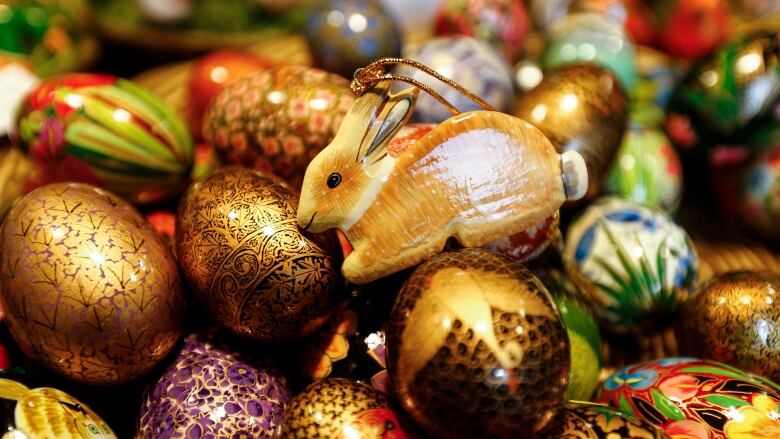Canada's taking its sweet time overhauling the food guide, nutritionist says
New app tells you how much sugar has been added to your groceries

As you crash down from your weekend sugar high don't bother trying to check where all that chocolate fits in to Canada's Food Guide it'll be harder to find than anything the Easter Bunny hid.
The fact that "these little indulgences" are missing from the guide is just one of the reasons why many nutritionexperts and consumers are calling for its overhaul, something the Senate recommended in a report released earlier this month.
- Introduce sugar tax, ban food and drink ads for kids: Senate obesity report
- Health groups want warning labels on sugary drinks
It's also equally important that the food guide and nutritional labels are updated to explain how much sugar people should eat and the difference between the less healthy added sugars and those that naturally occur in food, the chair of the University of Toronto's nutritional sciences program said.
"Most of our problems are too much food, too high calories and we're fighting things like obesity and chronic diseases," Mary L'Abbe said. "And that's really what our food guide needs to change ...telling us how to eat more healthy, how to eat the correct types of food and really start focusing on how to reduce all the calories that we're getting every day."
Two-thirds of Canadian adults are overweight or obese and the food guide does not offer enough help to people trying to slim down, L'Abbe said.
Sweet app
In fact, a study the professor was involved in last year found that if people ate all the daily recommended servings of food the guide called for, they would actually eat more than their recommended calories for the day.
Some of that's happened because of the increasing amount of sugar being added to processed food.
"You would think that spaghetti sauce is vegetables and seasonings and maybe herbs and some mushrooms but there's actually a lot of sugar added to that product which you wouldn't know about unless you looked more closely," L'Abbesaid.
To help with the breakdown, L'Abbe's colleague, Jodi Bernstein, helped develop OneSweetApp, which helps people track how much added sugar they're eating.
Scan a product's barcode and it will analyze the ingredients and calculate exactly how much extra sugar has been pumped into your dinner.
Just don't start entering Easter eggs in there, the number's aren't likely to be pretty.












_(720p).jpg)


 OFFICIAL HD MUSIC VIDEO.jpg)
.jpg)



























































































